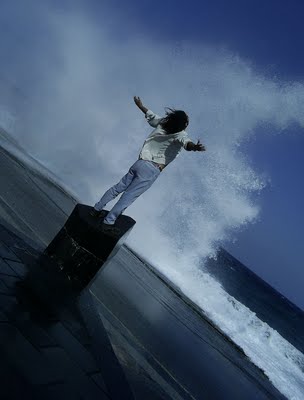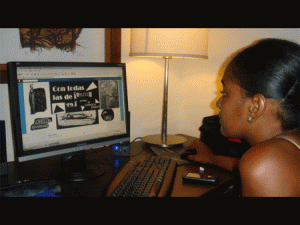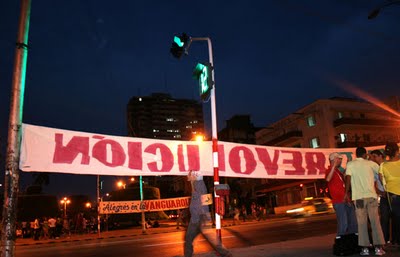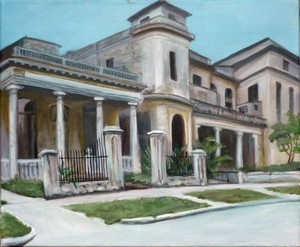 WE ALL LIVE IN A HETERO SUBMARINE
WE ALL LIVE IN A HETERO SUBMARINE
Orlando Luis Pardo Lazo
The old Club Atelier at 17th and 6th in El Vedado, has been coated with a luxurious Beatlemaniacal iconography. “The Yellow Submarine” it’s called now. And from within is evoked the music of John Lennon sitting without his glasses in the little park next door (the glasses have been stolen about ten times).
The discipline within the club, as with all space in the nations, is quasi-military: not in vain is the submarine the fleet insignia of sixties Cuba, though it is full of youngsters with the tickets (paid in hard currency). You can not jump back and forth too much between the tables, let alone sing along to edge of madness when some group performs a cover. You can’t lean against the walls. Only the local crew can move the tables and chairs. And, most coherent in the case of a straight band like The Beatles: You can not kiss people of the same sex (in the bathroom, go for it; but on the floor, no way).
And it is not homophobia, please, The Yellow Submarine’s security machos don’t want any clash with the Marielitas of CENESEX*. It’s just that to show labio-lingual affection in public violates the rules of this and perhaps all nocturnal Cuban institutions. If, moreover, the flirting is between girl and girl, or between boy and boy, or between both in any random disorder, then the proletarian morals of the New Hetero that never completely went away are compromised.
This Saturday they came to expel various ex-Atelier young people, after admonishing them as if it were a school assembly (kissing from inside the closet, I say: is it so hard to understand that behind the relaxation nothing less than the Revolution itself is resigned? It even rose to physical violence when one of the expelled tried to film it with a cell phone. It is known that in classical socialism (unchanging by definition) cameras and VCRs are sneaky weapons of the enemy abroad.
I don’t want to give data. Nor details. I don’t want to be credible. I don’t give even half a damn. So get out of here right now by clicking, to comment and applaud at those demagogic speeches on Cuban Day Against Homophobia. I’ll stick with this anachronistic anecdote in the XXI Century (which in Cuba is read as an anagram of XIX). I’ll stick with the certainty that the repression in Cuba, rather than physical (which it greatly is, of course) is chromosomal: Cro-Magnon.
I know a thousand girls who are partners of girls and who don’t dare to show affection in the street. I know thousands of boys who are partners of boys and who believe in God and don’t dare to even whisper it to their neighbor. In this cynical and para-militarily uncivil Havana, the “tolerant” sites are filthy and full of gays who prostitute themselves on the edge of criminality. They are girls and boys I know who don’t even consider themselves gays. In fact, they aren’t. They are girls who desire or love girls. They are boys who desire or love boys. Why distinguish them as if they were patients who require specialized attention. They are Cubans, and no social process is better than the intimate soul of each and every one of them.
Anyway, I invite one of these island children of the night to drop into “The Yellow Submarine” with me. If you’re a girl, I will nod calmly at your side and not flirt with you overcome by hormones. If you’re a boy, Oh Darling, I swear by my mother who sleeps now in Lawton, I will not fall into the temptation to kiss you.
Translator’s note:
CENESEX is the National Center for Sex Education, run by Mariela Castro, Raul’s daughter.
May 29 2011



 In
In 







